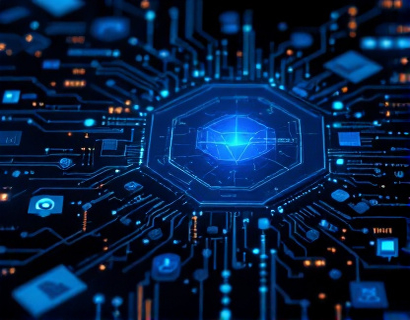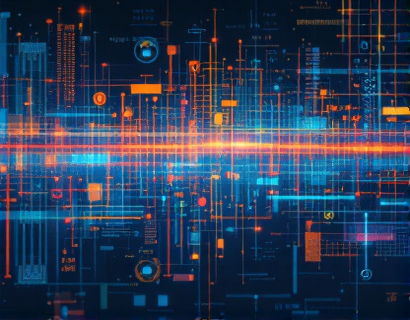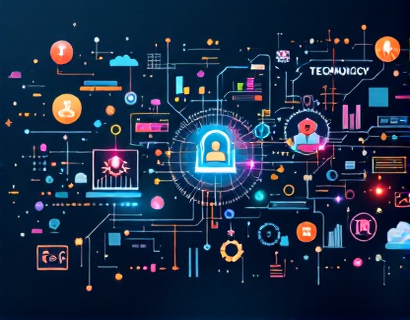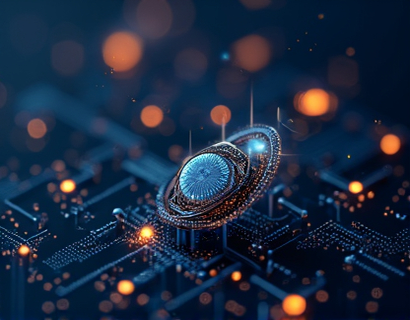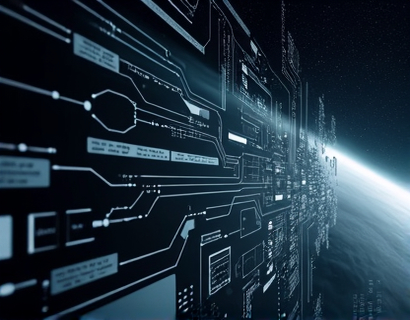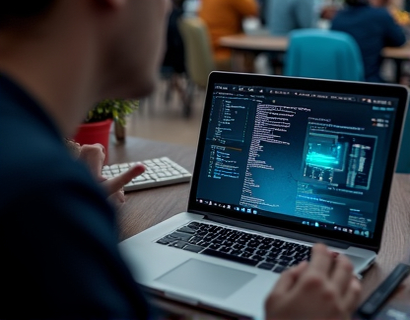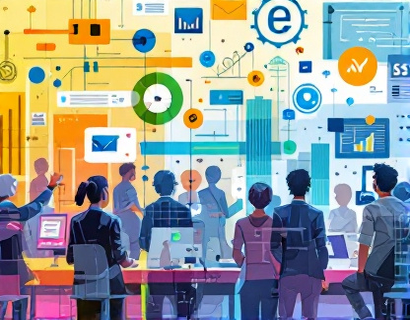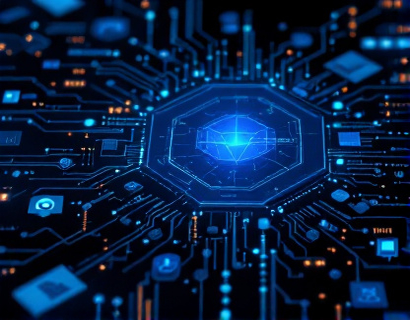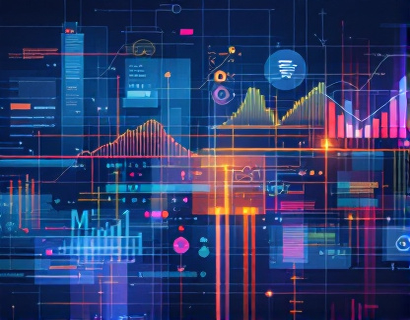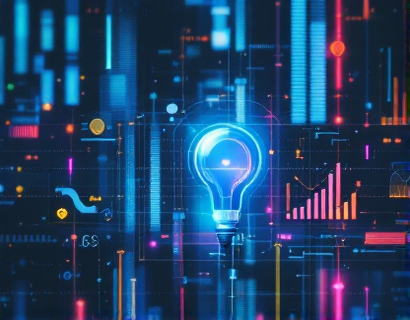Decentralized Productivity: Maximizing Efficiency with AI and Crypto Integration
The integration of Artificial Intelligence (AI) and cryptocurrency is ushering in a new era of decentralized productivity tools. This synergy is redefining how we approach digital collaboration and efficiency, offering unprecedented opportunities for tech innovators and early adopters. The convergence of these technologies is not just a trend but a fundamental shift in the way we interact with digital systems, promising to enhance productivity, security, and accessibility.
Decentralized productivity tools leverage blockchain technology to create transparent, secure, and tamper-proof environments for collaboration. By eliminating intermediaries, these tools reduce costs and increase efficiency. AI, on the other hand, brings intelligence and automation to these systems, enabling smarter decision-making and streamlined workflows. Together, AI and cryptocurrency are paving the way for a more efficient and equitable digital landscape.
Understanding Decentralized Productivity
Decentralized productivity refers to the use of decentralized technologies to enhance and manage various aspects of work and collaboration. Unlike traditional centralized systems where data and control are held by a single entity, decentralized systems distribute these elements across a network of nodes. This distribution ensures that no single point of failure exists, making the system more resilient and secure.
The core principle of decentralization is trustless execution, meaning participants do not need to trust each other or a central authority. Instead, transactions and data are verified through consensus mechanisms, ensuring integrity and reliability. This trustless environment is particularly beneficial in collaborative settings where multiple parties with varying levels of trust interact.
Role of AI in Decentralized Systems
AI plays a crucial role in enhancing decentralized productivity by automating complex tasks, providing insights, and optimizing processes. In a decentralized framework, AI can analyze data from multiple sources, identify patterns, and make predictions without the need for a central authority. This capability is invaluable in scenarios where real-time decision-making and personalized experiences are essential.
One of the key applications of AI in decentralized systems is smart contracts. Smart contracts are self-executing contracts with the terms of the agreement directly written into code. AI can enhance smart contracts by adding predictive analytics and machine learning algorithms, allowing for more dynamic and adaptive contract execution. For instance, AI can predict market trends and automatically adjust contract terms to optimize outcomes.
Enhanced Security through Crypto Integration
Cryptography is the backbone of decentralized systems, ensuring that data remains secure and private. By using cryptographic techniques, decentralized productivity tools can protect sensitive information from unauthorized access and tampering. This is particularly important in collaborative environments where multiple users with different levels of access need to interact with shared data.
Blockchain technology, a decentralized ledger, provides an immutable record of all transactions. Each block in the chain contains a cryptographic hash of the previous block, making it nearly impossible to alter past transactions without detection. This immutability ensures that data remains consistent and trustworthy, which is crucial for maintaining the integrity of decentralized productivity tools.
Improved Collaboration and Accessibility
Decentralized productivity tools powered by AI and crypto integration offer significant improvements in collaboration and accessibility. Traditional centralized systems often suffer from bottlenecks and single points of failure, which can hinder collaboration. Decentralized systems, however, allow for seamless and simultaneous access to data and tools from anywhere in the world.
AI-driven features such as real-time translation, automated summarization, and intelligent task assignment can break down language barriers and streamline workflows. These features ensure that team members, regardless of their location or native language, can collaborate effectively and efficiently. Additionally, decentralized platforms can be accessed without the need for intermediaries, reducing latency and improving overall performance.
Case Studies and Real-World Applications
Several projects and platforms are already leveraging the power of AI and cryptocurrency to create decentralized productivity tools. One notable example is Filecoin, a decentralized storage network that uses AI to optimize data storage and retrieval. Filecoin incentivizes users to share their unused storage capacity, creating a robust and scalable storage solution. AI algorithms manage the allocation of storage resources, ensuring efficient use and high availability.
Another example is Swarm, a decentralized file-sharing protocol that uses IPFS (InterPlanetary File System) and AI to enhance file distribution and access. Swarm's AI-driven content delivery network (CDN) optimizes file retrieval by predicting user requests and caching frequently accessed files. This results in faster download speeds and reduced bandwidth costs for users.
Challenges and Considerations
While the potential of decentralized productivity tools is vast, there are several challenges and considerations that need to be addressed. One of the primary challenges is scalability. As the number of users and transactions increases, ensuring that the system remains efficient and responsive is crucial. AI can help mitigate this by optimizing resource allocation and improving network performance.
Another challenge is user adoption. Decentralized systems often require a higher level of technical understanding and setup compared to traditional centralized solutions. Educating users and simplifying the onboarding process are essential for widespread adoption. Additionally, regulatory compliance is a significant concern, as the legal landscape for cryptocurrency and decentralized technologies is still evolving.
Future Prospects
The future of decentralized productivity is promising, with ongoing advancements in AI and blockchain technology. As these technologies mature, we can expect more sophisticated and user-friendly tools that further enhance collaboration and efficiency. The integration of AI with decentralized systems will likely lead to the development of autonomous workflows, where AI handles routine tasks, allowing humans to focus on higher-value activities.
Moreover, the rise of Web3 and the decentralized web will provide a more open and inclusive digital environment. Decentralized productivity tools will play a pivotal role in this ecosystem, enabling users to own and control their digital assets and data. The combination of AI and cryptocurrency will continue to drive innovation, making decentralized productivity an indispensable part of the digital landscape.
In conclusion, the integration of AI and cryptocurrency is revolutionizing productivity tools, offering a decentralized, secure, and efficient alternative to traditional systems. As tech innovators and early adopters, embracing these technologies can lead to significant advancements in digital collaboration and productivity. The future is decentralized, and the possibilities are endless.








